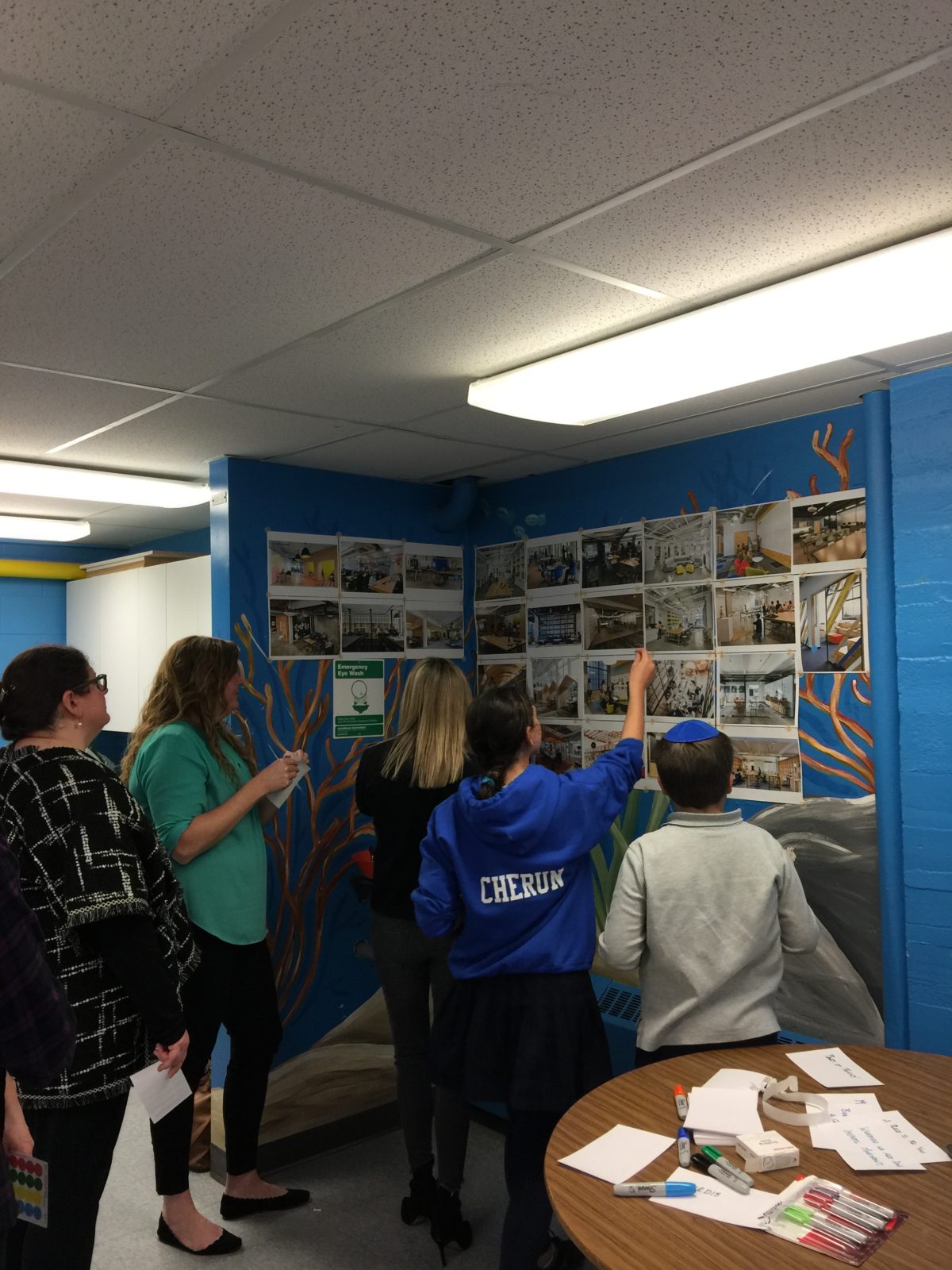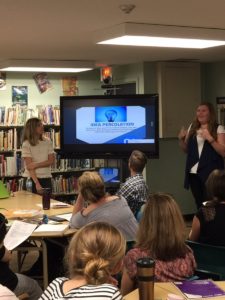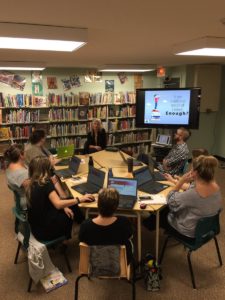It just got real. Real exciting.
As we announced last year, thanks to the generosity of the Congregation Beth Shalom Legacy Fund, we were going to take on our first major project to make our physical space as innovative as our educational program. Or rather, we are now able to think about designing spaces that will best allow the unique vision OJCS has for teaching and learning to best come to life. [With a building as “seasoned” as ours, we don’t lack for options!] We intend to completely redo our “computer lab” and transform it into a tech-friendly collaborative workspace. We intend to completely redo our “library” and transform it into a 22nd century media literacy center. Etc. But we have decided to lead with a makerspace. Why? Glad you asked!
Although more and more schools have invested in makerspaces, it is still rare enough that it is okay if you are asking yourself an obvious question: What is a makerspace?
Makerspaces are popping up in schools across the country. Makerspaces provide hands-on, creative ways to encourage students to design, experiment, build and invent as they deeply engage in science, engineering and tinkering.
A makerspace is not solely a science lab, woodshop, computer lab or art room, but it may contain elements found in all of these familiar spaces. Therefore, it must be designed to accommodate a wide range of activities, tools and materials. Diversity and cross-pollination of activities are critical to the design, making and exploration process, and they are what set makerspaces and STEAM labs apart from single-use spaces.
When you think about many of the exciting prototypes in play this year at OJCS – Genius Hour, VR, 21st Century Judaica, Robotics, Blogs, Recreating Biblical Artifacts and QR Codes for Art Projects, just to name a very few – they share one feature in common. They all require our students (and teachers) to make something. These are all learning prototypes that include or result in a tangible (including digital or virtual) product. They are also projects that are both cross-curricular and collaborative. A classroom is not always designed to house learning of this kind. Our school needs a place where students can come as a class or in teams or on their own to be inspired. Our school needs a place where teachers can come with students or in their own teams or on their own to be inspired. Our school needs a learning commons designed as a hub of creativity. Our school needs an incubator of innovation. Our school needs a makerspace.
And so the work has begun! Our first step was to identify a partner to bring our dreams to life. We interviewed a few architecture firms, but found in our new friends Ryan and Wendy, from Project1 Studio, a partner who brings enthusiasm, creativity and expertise to the work. Our next step, which was this week, was to convene a group of teachers, students and administrators for a “Visioning Session” to allow them to begin to identify the kinds of activities we believe should take place in our new OJCS Makerspace. What will be the right blend of…
- movie-making equipment (green screens, sound mixing, movie editing equipment, etc.)
- robotics,
- coding,
- 3D printing,
- VR,
- state of the art presentation space (TED Talk-style),
- woodworking,
- crafts,
- science/STEM/STEAM,
- brainstorming/mental-mapping/collaborating spaces,
- inspiring/relaxing/creativity-inducing spaces,
…activities, tools and zones to maximize our space and enhance energy and enthusiasm for learning at OJCS.
[Where is this space going to be located, you might be wondering (if you are an OJCS parent)?
We are working with the footprint of our current Science Lab and adjoining offices. That gives us about a 1,300 square foot space to play with, but it does require that we factor in our current Science needs within the design.]
Once we settle on our priorities, we will move to design. From design we move to furniture and fixtures and from there we move to construction itself. Our current schedule has us breaking ground in July and on target for a grand opening on the very first day of the 2019-2020 school year!
It will be our pleasure to share out designs as they come in and it would be our pleasure to show any current or prospective families the spaces we are discussing. Although we know the building isn’t the most important factor in a quality education, we also know that the right kinds of spaces can have a meaningful impact on the educational experience. We are proud at OJCS to be creating innovative spaces to match our innovative program. It is just another example of how OJCS is becoming an educational leader in our community.
And we are still just beginning…











 Since
Since 
 Now one can argue that only those who already thought innovation was important would fill out a survey about innovation…but still…that’s a lot of Jewish day schools who think innovation is very or extremely important.
Now one can argue that only those who already thought innovation was important would fill out a survey about innovation…but still…that’s a lot of Jewish day schools who think innovation is very or extremely important.




